AMSCI Consortium meeting held at the IfM
The meeting was jointly organised by Laing O’Rourke and University of Cambridge - DIAL and Engineering Design Centre (EDC). More than 40 people attended the meeting representing more than 20 consortium partners from Laing O'Rourke, Airedale, Apex Cables, Armstrong, Arup, Beckhoff Automation, British Gypsum/Saint Gobain, BRE, Crane, Crown House Technologies, Expanded, Explore Manufacturing, Fulcro, Grundfos, Hamworthy Heating, Hoare Lea, Select, SIG, Thorn Lighting, University of Sheffield Advanced Manufacturing Research Centre and WSP.
The University of Cambridge is involved in the Integrated Design for Manufacturing and Assembly research work stream (AMFDFMA), the aim of which is to address the overarching question of ‘how the resilience of novel construction elements and their associated design and manufacturing processes can be improved?’ Central to achieving this aim is the inherent importance of project management decision making, and the cross-team and cross-company information flow, design approaches and tools necessary to support effective decisions.
Dr Tariq Masood reported on the AMFDFMA work stream. This included updates on preliminary change modelling work of EDC, manufacturing system planning work plans of DIAL, engagement with design and manufacturing teams of Laing O’Rourke and AMSCI partners.
He also reported on recently completed DIAL MET student projects. In project 1, Daniel Brackenbury investigated product and process innovation and supply chain mapping for a 90+ project of Laing O’Rourke. He also identified requirements for kitchens, assembly line and potential suppliers. Different assembly routes were also simulated. In project 2, Jack Bews conducted a supply chain and manufacturing cost analysis for product lines, supplier sourcing and make vs buy analysis for pipe manipulation (bending, collaring and flanging).
EDC organised a change modelling workshop as part of the consortium meeting.
During the morning session of the workshop, Prof John Clarkson introduced dependency structure matrices (DSMs) with relevant examples. Then breakout sessions were held with the participants to populate the DSMs for an AMSCI case study. The Cambridge team modelled the captured data of change propagations. In the afternoon session, the post-processed change prediction matrices were presented. The workshop sessions received very positive feedback from the participants.
DIAL organised two optional demonstrations on the day which proved to be very popular and fully booked. Alan Thorne conducted Disruption Tolerant Automated Lean Factory Demonstrator (DisTAL) in the DIAL Automation Lab, while RedBite conducted RedStore - Makes objects SMART demo at the IfM Plant Room.
For any further queries, please contact Tariq Masood tm487@cam.ac.uk.
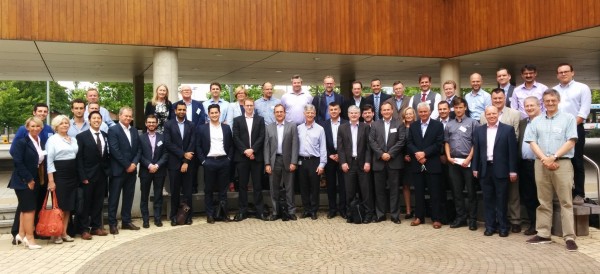
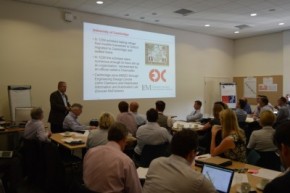 |
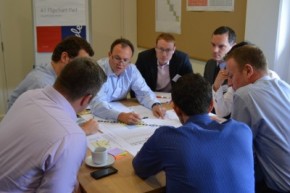 |
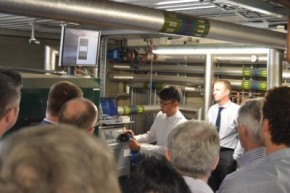 |
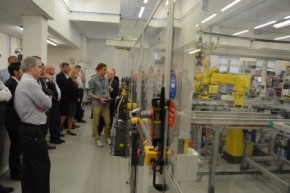 |










